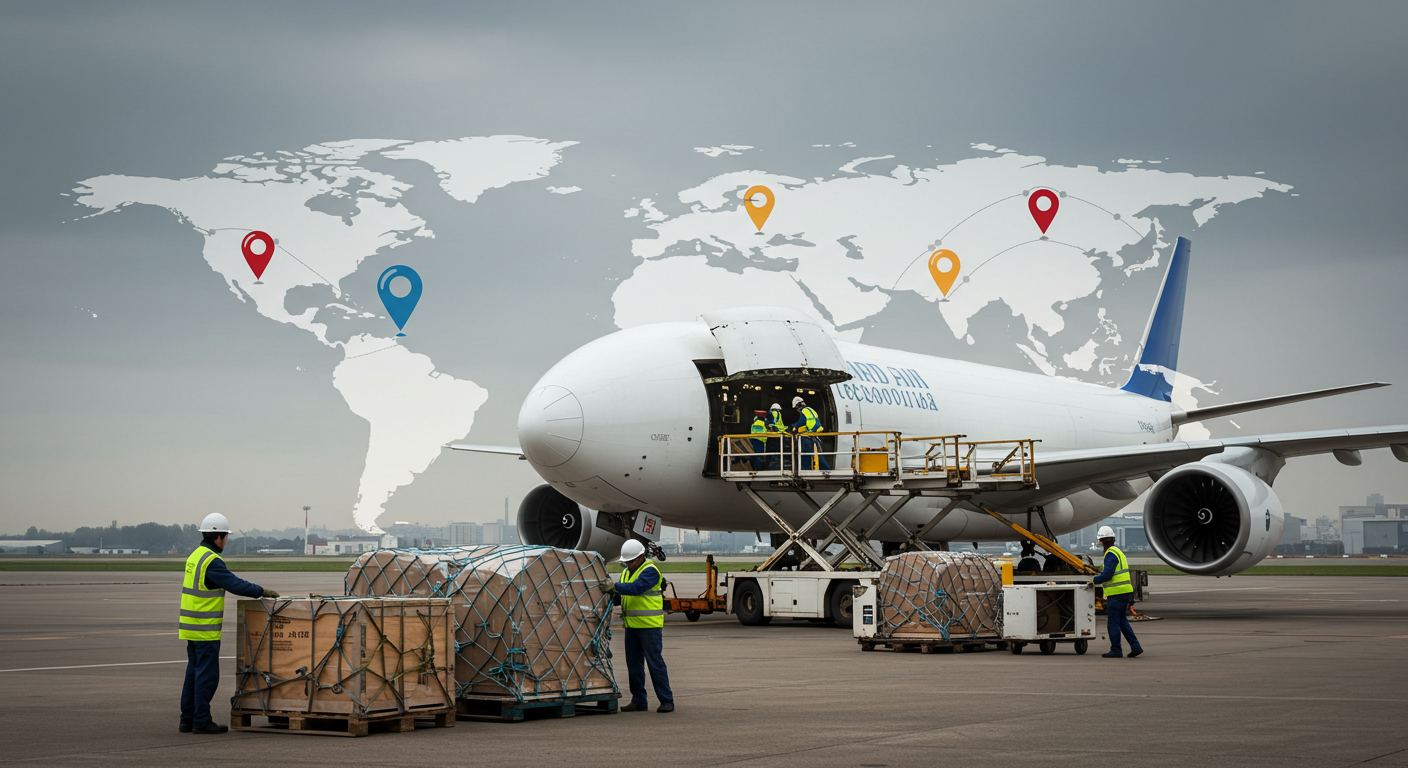In a rapidly evolving global marketplace, businesses constantly seek ways to enhance their operational efficiency, particularly in the realm of logistics. Air freight has surfaced as a leading option for international goods transport, revolutionizing how products move across borders. This method stands out amidst a myriad of transportation options.
Unmatched Speed of Air Freight in Transporting Goods
When it comes to logistics, speed is a crucial factor that can make or break a business’s success. Air freight consistently delivers on this front, enabling rapid transit of cargo, often within a window of 24 to 48 hours, depending on the distance and specific airline schedules. This remarkable speed contrasts sharply with other forms of transportation such as sea or road freight, which can take days or even weeks to deliver goods.
This speedy delivery is essential for several scenarios:
- Time-sensitive goods: Items like electronics, certain pharmaceuticals, and perishables such as fruits often require prompt delivery to retain their quality or urgent shipment to meet customer demand.
- Seasonal goods: Businesses often face spikes in demand during specific seasons. Air freight allows swift replenishment of inventory, preventing stockouts and ensuring customer needs are met.
- Expedited services: Many air freight companies, including FedEx and UPS, offer express delivery options that can facilitate same-day delivery for urgent shipments.
Reliability and Consistency in Air Freight Services
Another compelling advantage of air freight is its reliability. Businesses depend on accurate and timely deliveries; air freight services are often designed to meet these requirements through strict adherence to schedules. Unlike sea or road transport, air carriers like VZLA2018 LLC utilize precise operational frameworks to ensure goods arrive at their destinations as planned.
Here are several factors that contribute to the reliability of air freight:
- Airlines operate on tight schedules, reducing delays typically caused by transit handling or logistical complexities that may arise in other transportation modes.
- While weather can influence airline operations, air freight is generally less affected compared to road or rail transport, which can be severely impacted during inclement weather.
- Air freight often incorporates rigorous screening and handling protocols that minimize the risk of theft or damage, enhancing the trustworthiness of shipments arriving safely.
Global Connectivity and Market Reach through Air Freight
Air freight’s broad geographic reach is one of its most distinguished features. With a comprehensive network of airports and airlines, air freight services provide access to even the most remote locations around the globe. This extensive connectivity is vital for businesses seeking to expand their operations or customer base beyond domestic borders.
Consider the advantages of global connectivity:
- As economies continue to grow worldwide, air freight opens the doors to new avenues, allowing businesses to tap into previously uncharted territories.
- Shipping valuable goods across borders becomes manageable, simplifying the complexities of customs clearance with expedited air services.
- The ability to send products to various geographical locations in real-time enables businesses to respond swiftly to shifts in consumer demand.
Flexibility in Handling Various Cargo Types
One of the most appealing aspects of air freight is its ability to handle a diverse range of cargo. Unlike other transportation modes that may have strict limitations, air freight can accommodate various items, from small parcels to substantial freight loads. This flexibility makes air freight an attractive option for businesses with multiple types of products, including:
- Perishable goods: Fresh produce and pharmaceuticals often require temperature-controlled conditions. Air freight can cater to these strict requirements with specialized cargo options.
- High-value items: Electronics, jewelry, and other valuables can benefit from air freight’s stringent security protocols.
- Hazardous materials: Specific airlines are trained and equipped to handle the complexities involved in transporting dangerous goods, ensuring compliance with safety regulations.
Cost Management and How Air Freight Affects Inventory Expenses
While air freight is often perceived as a higher-cost transportation option, the efficiency it brings can lead to significant savings, particularly in inventory management. Shorter transit times mean businesses can reduce their inventory holding costs, allowing them to allocate capital more effectively.
Key reasons for cost management benefits include:
- With faster shipping, businesses can afford to keep less stock on hand, minimizing warehousing expenses.
- Quick turnover of goods mitigates the risk of inventory becoming outdated or unsellable, enhancing overall operational efficiency.
- The agility air freight offers enables businesses to adapt to market changes and customer demands rapidly, improving their competitiveness.
Ultimately, utilizing air freight can elevate a company’s operational capabilities, allowing for a streamlined supply chain that maximizes efficiency and minimizes costs. With the rapid pace of modern commerce, many companies are reassessing their shipping strategies and embracing air freight for its overarching benefits.
